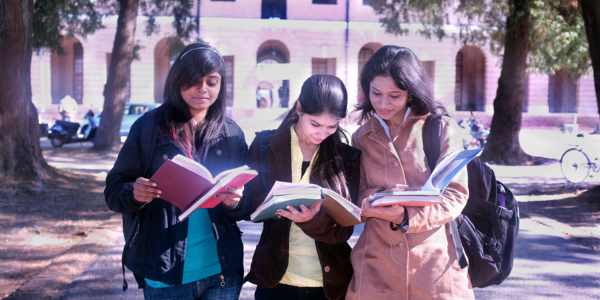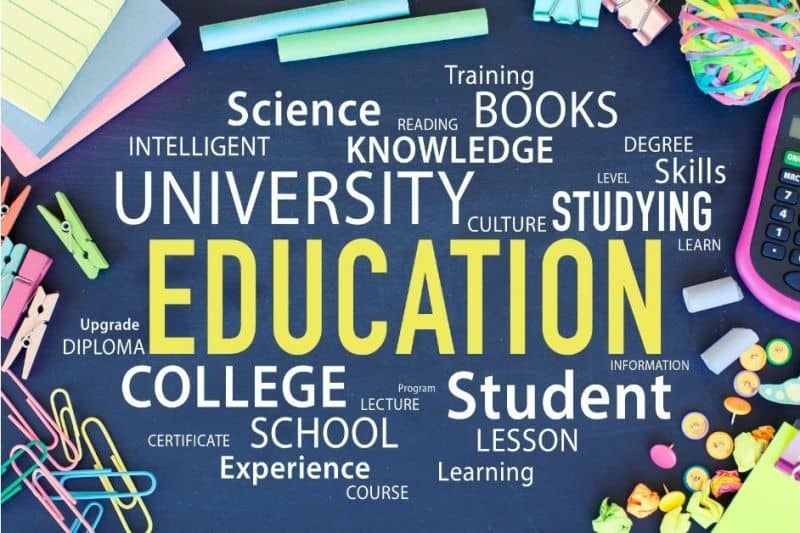The Bachelor of Education (B.Ed) program is a crucial step for individuals aspiring to become educators and contribute to the field of education. As the academic year for B.ED Admission 2024 approaches, prospective candidates are eager to understand the syllabus, fee structure, and the vast scope that a B.Ed degree can offer. This article aims to provide comprehensive insights into these aspects, guiding potential applicants in making informed decisions about their educational journey.
Bachelor of Education is a degree Prog in education field. After achieving bachelor degree in education, a student is eligible for working as a teacher in the secondary and higher secondary/sr secondary schools in India in Govt and Private Sector Schools. Total duration of the course is 2 years. It is now Compulsory to have a Bachelor degree to teach in both high schools and higher primary schools at TGT/PGT level. To get enrolled in the Degree Course, the candidate must have at least passed their graduation with a Bachelor of Arts / Science / Commerce or other bachelor degree.

Understanding the essence of the B.ED program is vital for those aspiring to contribute meaningfully to the realm of education. Let’s explore the course details in depth to unveil the richness that a B.ED degree can offer to passionate individuals seeking to make a difference in the lives of learners.
B.ED Course eligibility – It is very important for the students to know about the complete eligibility criteria for admission. According to the NCTE rules, the eligibility criteria for the Bachelor of Education is same across all the states, universities and colleges. However, there may be some difference in the subject combinations offered by different institutions.
1: The candidate must have pursued a Bachelors degree in BA (Bachelors of Arts)/ B.Sc (Bachelors of Science)/ B.Com (Bachelors of Commerce)or an equivalent from a recognised institute.
2: The candidate must have acquired a minimum aggregate of 50% with all the subjects put together in the qualifying degree.
3: The candidates who have pursued graduation in Bachelors of Technology (B.Tech) with 55% minimum aggregate are also eligible to apply for admission
B.ED Course Syllabus
The B.ED program is a 2 years comprehensive course designed to provide prospective teachers with a robust foundation in educational theory, pedagogy, and practical skills. As we are talking about the admission season for 2024, this article aims to illuminate the Complexity of the B.ED course syllabus / B.ED Admission, shedding light on its diverse curriculum, teaching methodologies, and the practical elements that prepare educators for the dynamic challenges in today’s educational landscape. Below are the key components of the B.ED syllabus:
1. LEARNING & TEACHING
2. CHILDHOOD & GROWING UP
3. CONTEMPORARY INDIA & EDUCATION
4. Pedagogy of School Subjects (2 Subjects you can choose on basis of your UG/PG Prog):
• Pedagogy of English / Hindi / Sanskrit / Urdu
• Pedagogy of Mathematics
• Pedagogy of Social Sciences
• Pedagogy of Natural Sciences
• Pedagogy of Physical Sciences
• Pedagogy of Computer Sciences
• Pedagogy of Home Sciences
• Pedagogy of Commerce
• Pedagogy of Economics
• Pedagogy of Music / Fine Arts
5. Assessment and Evaluation:
• Techniques of Evaluation
• Continuous and Comprehensive Evaluation (CCE)
6. Educational Technology:
• Integration of Technology in Education
• E-learning Platforms and Tools
7. Internship and Practical Training:
• Teaching Practice
• Classroom Management
B.ED Course Fees

Understanding the financial aspect of pursuing a B.Ed degree is crucial for prospective candidates. The fee structure may vary among different institutions for B.ED Admission, but generally includes the following components:
1. Tuition Fees: This covers the cost of academic instruction and varies based on the reputation of the institution.
2. Examination Fees: Charges associated with conducting examinations and evaluations throughout the course.
3. Library and Laboratory Fees: Costs related to accessing educational resources, including books and laboratory facilities.
4. Miscellaneous Fees: Administrative charges, identity card fees, and any other miscellaneous expenses.
Approximately 45,000 per year to 55,000 per year fee will be charged in most of the universities in Delhi/NCR for B.ED Admission.
Scope Of B.ED Course
A B.ED degree opens up a Door to opportunities for individuals looking to make a significant impact & Future in the field of education. The scope extends beyond traditional teaching roles to encompass various sectors:
1. School Teaching: B.ED graduates can pursue careers as school teachers, imparting knowledge in subjects they specialized in during their training.
2. Educational Administration: Opportunities exist in educational administration and management, allowing graduates to take up leadership roles in schools and educational institutions.
3. Curriculum Development: B.ED degree holders can contribute to shaping educational content by working in curriculum development and instructional design.
4. Education Consultancy: Consulting firms often seek the expertise of B.ED graduates to provide insights into educational practices and pedagogy.
5. Online Education: The rise of online education platforms has created avenues for B.ED graduates to engage in virtual teaching and instructional design.
6. Special Education: B.ED graduates with a specialization in special education can work with students with diverse learning needs.

B.ED Colleges in Delhi / NCR | B.ED Admission
Delhi/NCR is home to several esteemed universities offering Bachelor of Education (B.ED) programs. Here are some well-known universities that you might consider for pursuing a B.ED Admission in Delhi / NCR region:
- University of Delhi (DU):
- DU, one of India’s premier universities, has various colleges affiliated with it that offer B.Ed programs. Some notable colleges include Lady Shri Ram College for Women, St. Stephen’s College, and Miranda House.
- University of Delhi (DU):
- Guru Gobind Singh Indraprastha University (GGSIPU):
- GGSIPU is a state university in Delhi that offers a B.Ed program through affiliated colleges. The university is known for its commitment to quality education and modern teaching techniques.
- Guru Gobind Singh Indraprastha University (GGSIPU):
- Kurukshetra University:
- Kurukshetra University, located in Kurukshetra, Haryana, is known for its strong academic programs. The Department of Education at this university offers a B.Ed program that focuses on preparing educators with a solid foundation in pedagogy.
- Kurukshetra University:
- Maharshi Dayanand University (MDU), Rohtak:
- MDU, located in Rohtak, is a prominent university offering various undergraduate and postgraduate programs. The university’s Department of Education provides a B.Ed program emphasizing both theoretical and practical aspects of teaching.
- Maharshi Dayanand University (MDU), Rohtak:
- Chaudhary Devi Lal University (CDLU), Sirsa:
- CDLU in Sirsa is known for its commitment to quality education. The university offers a B.Ed program that aims to nurture aspiring teachers with the necessary skills and knowledge.
- Chaudhary Devi Lal University (CDLU), Sirsa:
- Jindal Global University, Sonipat:
- Jindal Global University, located in Sonipat, is a private university known for its interdisciplinary approach to education. The university’s School of Education offers a B.Ed program focusing on modern teaching methodologies.
- Jindal Global University, Sonipat:
- Bhagat Phool Singh Mahila Vishwavidyalaya (BPSMV), Khanpur Kalan:
- BPSMV is a women’s university located in Khanpur Kalan, Sonepat. The university offers a B.Ed program designed to empower women in the field of education.
- Bhagat Phool Singh Mahila Vishwavidyalaya (BPSMV), Khanpur Kalan:
- Chaudhary Ranbir Singh University (CRSU), Jind:
- CRSU, situated in Jind, offers a B.Ed program with a curriculum that aligns with contemporary educational practices. The university emphasizes practical training to prepare educators for real-world challenges.
- Chaudhary Ranbir Singh University (CRSU), Jind:
- Manav Rachna University, Faridabad:
- Manav Rachna University in Faridabad is a private institution known for its modern infrastructure and quality education. The university’s School of Education offers a B.Ed program with a focus on innovative teaching methodologies.
- Manav Rachna University, Faridabad:
- Deenbandhu Chhotu Ram University of Science and Technology (DCRUST), Murthal:
- DCRUST in Murthal is recognized for its engineering and technological programs. The university’s Department of Education offers a B.Ed program for those aspiring to become educators.
- Deenbandhu Chhotu Ram University of Science and Technology (DCRUST), Murthal:

how to do b.ed
To pursue B.ED (Bachelor of Education), follow these general steps:
Complete Your Bachelor’s Degree: B.ED is a postgraduate program, so you need a bachelor’s degree in any discipline from a recognized university.
Research B.ED Programs: Explore different universities or institutions offering B.Ed programs. Consider factors such as accreditation, faculty, infrastructure, and placement opportunities.
Check Eligibility Criteria: Ensure you meet the eligibility criteria set by the institution. This usually includes a minimum percentage in your bachelor’s degree and, in some cases, a specific focus on education-related subjects.
Entrance Exams: Some universities may require you to take an entrance exam. Prepare for and take the required entrance test as per the admission process.
Application Process: Fill out the application form for the B.ED program at the chosen institution. Submit all required documents and pay the application fee.
Attend Counseling/Interviews: Some institutions may conduct counseling sessions or interviews as part of the selection process. Be prepared to discuss your educational background, motivation for pursuing B.ED, and related topics.
Admission Offer: If selected, you will receive an admission offer. Follow the instructions provided to complete the admission process, including payment of fees.
Academic Program: Engage actively in the B.ED program, attending classes, participating in practical teaching sessions, and completing any required projects or assignments.
Teaching Practice: B.ED programs often include a teaching practice component where you gain hands-on experience in a school setting. This is a crucial part of the program.
Complete the Program: Fulfill all the academic requirements, including examinations and any other assessments, to complete the B.ED program.
Receive Degree: After completing the program, you will be awarded the Bachelor of Education (B.ED) degree.
Conclusion:
As the BED admission season for 2024 approaches, prospective candidates should carefully consider the syllabus, fee details, and the broad scope that a BED degree offers. Pursuing a BED not only enriches one’s knowledge but also prepares individuals to play a pivotal role in shaping the future of education. It is crucial to research and choose an institution that aligns with one’s educational and career aspirations.
How Cambridge Education Helps You in B.ED Admission
Having Multiple colleges under our Domain in Delhi/NCR for B.ED Counselling & Admission, Cambridge Education a well-known name for the last 27 years. If you want to be admitted in any Government University in NCR/Haryana, you just need to fill out our inquiry form or click on the contact icon for a WhatsApp message or Call and our team of experts will help you complete the process and get confirmed admission without the Entrance Exam.
FAQ'S...
What is B.ED
What is B.Ed Course
Can B.Ed students apply for primary teacher
Can I do B.Ed after 12th
How many subjects are there in B.Ed
B.ED Inquiry Form
You May Also Like.......






